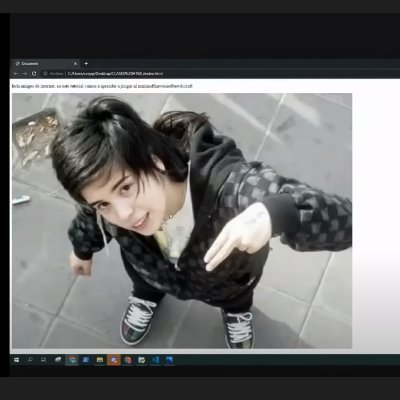
Mark Callaghan
@MarkCallaghanDB
Followers
7,139
Following
268
Media
38
Statuses
6,058
Explore trending content on Musk Viewer
North Carolina
• 878067 Tweets
Hurricane Helene
• 689427 Tweets
EP4 U STEAL MY HEART
• 390507 Tweets
FEMA
• 331183 Tweets
#FreeMorara
• 320207 Tweets
Mario
• 205923 Tweets
Dikembe Mutombo
• 132303 Tweets
Valdosta
• 125596 Tweets
Mimi
• 71671 Tweets
Verizon
• 60912 Tweets
Mets
• 57161 Tweets
HAPPY JIMTOBER
• 45806 Tweets
Indigenous
• 45547 Tweets
#النصر_الريان
• 41526 Tweets
#الاهلي_الوصل
• 38846 Tweets
Braves
• 38208 Tweets
Franklin Graham
• 32156 Tweets
MANTRA IS COMING
• 26047 Tweets
#KYSvBJK
• 24403 Tweets
Onana
• 20957 Tweets
Kemp
• 20325 Tweets
Powell
• 18975 Tweets
Semih
• 17004 Tweets
#KızılGoncalar
• 14784 Tweets
Kayseri
• 13414 Tweets
الجيش اللبناني
• 11600 Tweets
Last Seen Profiles
I am excited to start a new job next week doing performance at MongoDB with
@DavidDaly44
and
@h_ingo
24
20
167
@spakhm
I tried several Linear Alg texts in between jobs. My favorite was written by Strang.
1
11
153
@stephaniemlee
UCSD takes 58% of a research grant as overhead. Is oversight to avoid problems like this something they should be expected to do?
6
4
141
Team Spanner: Spanner,
@CockroachDB
,
@Yugabyte
,
@PingCAP
Team Aurora: PG/MySQL Aurora, AlloyDB,
@neondatabase
Team Spanner is also DistSQL or NewSQL.
What is a better name for Team Aurora?
Neon is Postgres and OSS. When does Team Aurora get an OSS MySQL solution?
9
15
108
TreeLine - interesting paper, although I disagree with the claim that the primary reason for RocksDB (LSM) is write efficiency. The primary reason was space efficiency, while write efficiency was a secondary reason.
#VLDB2023
2
10
84
4 of the top 5 (Oracle, MySQL, MSFT, MongoDB) have peaked for 12+ months (no growth, or slight decline).
Only Postgres continues to grow.
No shame in not being able to grow forever, but fun to see Postgres continue to adapt, innovate and thrive.
DB-Engines Ranking climbers of the month:
1.
#Snowflake
2.
#BigQuery
3.
#PostgreSQL
@SnowflakeDB
@GoogleCloudTech
@PostgreSQL
0
9
26
2
17
80
This paper is worth reading and I look forward to more research in this space. We need better b-trees to navigate more of the read, write & space-amp tradeoffs explained in the Rum Conjecture paper.
Thank you Xiangpeng Hao and
@badrishc
At
#VLDB2024
, check our Bf-Tree, our high-perf B-Tree design optimized for small key-values. It uses a mini-page abstraction to cache reads/writes and a variable-length buffer pool to maintain them. See and attend session C3 at 3:30pm today to learn more!
2
13
107
1
9
79
@ovaistariq
Lets talk about the real outrage. They don't explain how DynamoDB uses InnoDB.
cc:
@jim_dowling
3
7
72
More advice for
@elonmusk
...
* disabling fsync will make databases run faster
* get rid of backups, rarely needed, big waste of $$$
8
9
71
@UMNComputerSci
@gregkh
I look forward to the post-mortem. Today a lot of time is being spent reviewing all of the previous commits from the UM research group.
1
1
62
Apparently
@Yugabyte
is telling the truth when they claim Postgres compatible. I was able to run the Postgres version of the Insert Benchmark without changes.
5
6
65
A great article, consider subscribing to
@lwnnet
Much useful info, including "changeset contributions by employer"
2
13
63
@isamlambert
Maybe this is the circle of life that all big companies go through. One result is that talent leaves for startups.
3
0
62
Met with
@mipsytipsy
. Happy to learn about growth of
@honeycombio
. Years ago I pitched her on benefit of staying at $bigTech. Clearly I know more about databases then business.
1
2
61
Pebbles, an LSM for
@CockroachDB
, is interesting. Compared to RocksDB:
1) commit pipeline is simpler
2) IO throttling for flush and compaction is different
3) writes are not stalled when flush/compaction gets behind
4
18
58
I am happy to see companies like
@RocksetCloud
leverage
@RocksDB
so they can focus on adding value higher in the stack. Just like FB was able to leverage LevelDB to start the RocksDB project -
2
12
52
@mituzas
@micsolana
I am having a hard time understanding people who have a hard time understanding the impact of a struggling company having a jerk as CEO who doesn't understand systems yet is happy to pontificate about them & fire employees who correct him. Not sure this saves his investment.
3
0
50
Interesting papers from
@BU_DiSClab
for VLDB:
* LSM Trees Under Memory Pressure
* BoDS: Benchmark on Data Sortedness
They also have a paper in progress on sortedness, OSM.
Papers:
1
6
48
@matthewokeefe1
@FranckPachot
So many teams at Google wasted much time building workarounds on top of BigTable to compensate for the lack of ACID and support their user-facing workloads. Spanner made things much better for them. Too bad those stories aren't told in public.
4
4
48
Congrats to my
@MongoDBEng
peers for getting this published -- using TLA+ for model-based trace checking
0
12
43
Yet another great paper from the Leanstore people. Page writeback on fast storage isn't easy, especially for a DBMS designed when storage was slower
"Write-Aware Timestamp Tracking: Effective and Efficient Page Replacement for Modern Hardware"
#vldb2023
2
8
43
The
@RocksDB
team paper from Fast '21 was selected for ACM ToS, and the ToS paper has more content.
0
8
42
When I read conference papers on LSM I often wish the paper didn't have an LSM overview. Reading the Tigger paper on using eBPF to build a DBMS proxy and the overview is excellent -- I needed that background info.
#vldb2023
2
6
41
I enjoyed reading "Optimizing Databases by Learning Hidden Parameters of Solid State Drives" and this blog post has a few comments and questions. I hope there is a sequel.
@pateljm
@uwKPark
@bpkrothGeek
2
11
40









































